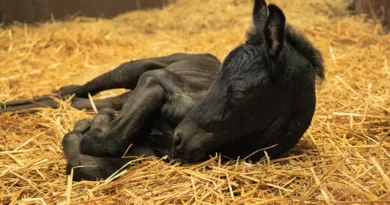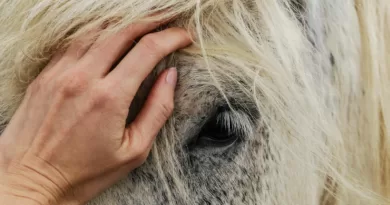How Much Does a Derby Horse Cost
The Price Range of Derby Horses
The price range of Derby horses can vary significantly depending on a multitude of factors. At the lower end, one might find horses priced around $10,000 to $30,000. These are typically young horses with little to no racing experience. On the higher end, prices can skyrocket into the millions. These horses are usually well-bred, have a proven track record in top-tier races, and possess an impressive pedigree. However, it is important to note that these figures represent general estimates, and there are always exceptions to the rule.
Factors That Influence the Cost of a Derby Horse
When it comes to determining the cost of a Derby horse, there are several key factors that play a significant role. First and foremost, the horse’s racing record and performance in previous races have a major influence on its price. Horses that have won multiple prestigious races or have consistently placed well in competitive events tend to command higher prices. Trainers and buyers alike place a premium on horses with a proven track record of success, as they are seen as more likely to perform well in future races.
Another important factor that influences the cost of a Derby horse is its pedigree. The lineage and bloodline of a horse can greatly impact its value. Horses that come from a long line of successful and highly regarded ancestors, especially those with a history of winning Derby races, are considered more desirable and thus can have a higher price tag. A strong pedigree is seen as an indication of inherited talent, increasing the likelihood of a successful racing career for the horse. Buyers are often willing to invest more in a horse with a prestigious lineage in the hopes of reaping future rewards on the racetrack.
The Importance of Pedigree in Determining Horse Prices
The importance of pedigree in determining horse prices cannot be overstated. A horse’s pedigree is essentially its family tree, tracing its lineage back several generations. A strong pedigree with a successful track record of ancestors can significantly increase a horse’s value. Breeders and buyers place great importance on the bloodlines, as they believe that successful ancestors can pass on their winning traits and abilities to future generations. Therefore, horses with renowned pedigrees are often sought after and can command higher prices in the market.
In addition to the potential for genetic success, pedigree also plays a crucial role in determining a horse’s marketability. Horses with prestigious pedigrees often have more lucrative opportunities for breeding or stud services, which can generate substantial income. Furthermore, horses with well-known bloodlines are more likely to attract attention from potential buyers, as they are perceived to have a higher chance of success in racing or other equestrian disciplines. As a result, the value of a horse with an impressive pedigree is not only determined by its own abilities, but also by the market’s perception of its potential for future achievements.
Training and Performance: How They Affect the Cost of Derby Horses
When it comes to the cost of Derby horses, training and performance play a significant role in determining their value. Horses that have undergone extensive training and have showcased exceptional performance are often priced higher than their less experienced counterparts. The training of a Derby horse includes various aspects such as breaking, conditioning, and race preparation. A well-trained horse will not only have a strong foundation in terms of basic commands and behavior but will also possess the necessary physical fitness and stamina required for competitive racing. Additionally, horses that have demonstrated consistent performance and successful race records tend to command higher prices in the market, as they are perceived as more likely to have a successful career on the track.
The training and performance of a Derby horse are closely intertwined with its potential for success. Buyers and investors consider the horse’s past performances, such as previous wins, race times, and rankings, to assess its potential for future victories. Horses that have achieved notable wins in prestigious races or have competed against top-level competition tend to carry a higher price tag. Conversely, horses with a history of poor performances or injuries may be perceived as higher risk and be priced accordingly. Potential buyers often look for horses with a consistent track record of success, as a proven winner has a higher likelihood of achieving success at future races, which translates into greater value in the market.
Auctions and Sales: Where to Buy Derby Horses
One of the most common and popular ways to buy a Derby horse is through auctions and sales. These events bring together a wide range of horses, from young prospects to experienced competitors, providing buyers with a variety of options to choose from. Auctions and sales are often held at prestigious equestrian facilities, attracting buyers from all around the world who are eager to find their next champion.
When attending an auction or sale, it is important to do your research beforehand and come prepared. Take the time to study the catalog or listings, which provide detailed information about each horse, including its pedigree, age, and performance history. This will help you narrow down your options and identify the horses that meet your specific criteria. Additionally, it is advisable to set a budget and stick to it, as auctions can quickly become competitive and prices can escalate rapidly. Being knowledgeable and financially prepared will give you the best chance of finding a derby horse that fits both your needs and your budget.
Hidden Costs: Expenses Involved in Owning a Derby Horse
Purchasing a Derby horse involves more than just the upfront cost of buying the horse. As an owner, there are numerous hidden expenses to consider. One significant expense is the cost of veterinary care. Regular check-ups, vaccinations, dental work, and routine health maintenance are all necessary to keep your horse in optimal health. Injuries or illnesses can also arise unexpectedly, requiring additional veterinary care and treatment, which can quickly add up.
Another significant hidden cost is the upkeep of the horse’s living environment. Stabling fees can vary widely depending on the location and amenities offered. Some horses may require special accommodations due to health issues or preferences, which can further increase these costs. Additionally, the cost of feed, hay, bedding, and other supplies can quickly accumulate, and it’s important to factor these expenses into your budget for owning a Derby horse.
The Role of Breeders in Setting Horse Prices
Breeders play a significant role in setting the prices of Derby horses. These individuals carefully select and breed horses with the aim of producing high-quality, top-performing contenders. The reputation and success of a breeder can greatly influence the value of a horse. Horses bred by reputable breeders with a track record of producing champions are generally priced higher, as there is an expectation of superior genetics and performance potential. On the other hand, horses from less established or unknown breeders may have lower price tags, as buyers may perceive them as having a higher risk factor or lower chances of achieving success in the Derby. Consequently, the reputation and expertise of breeders greatly influence the pricing dynamics of Derby horses.
Furthermore, breeders also consider factors such as bloodline, conformation, and pedigree when determining the prices of their horses. Bloodline refers to the lineage of the horse, including its sire and dam, which can offer insights into the horse’s racing potential. If a Derby horse comes from a prestigious lineage that has produced multiple winners or champions, it is likely to command a higher price. Additionally, conformation – the physical structure and appearance of the horse – is also evaluated by breeders. Horses with well-balanced and ideal conformation are often priced higher, as they are believed to have a higher likelihood of performing well in races. Finally, pedigree, which combines bloodline and conformation, is highly regarded in the horse racing industry. Horses with impeccable pedigrees, tracing back to successful ancestors, often demand higher prices as they are perceived to have a greater chance of achieving future success on the racetrack.
Notable Examples: Famous Derby Horses and Their Costs
One of the most iconic and expensive Derby horses of all time was Secretariat. Known as “Big Red,” Secretariat won the Triple Crown in 1973 and remains one of the greatest racehorses in history. His cost was estimated to be around $6 million, making him one of the most valuable horses in the world.
Another notable Derby horse is American Pharoah, who captured the hearts of racing fans when he won the Triple Crown in 2015. With an impressive pedigree and exceptional performance on the track, American Pharoah was purchased for approximately $300,000 as a yearling. After his historic Triple Crown victory, his value skyrocketed, and he later sold for a reported $35 million. These examples showcase how successful Derby horses can command high prices, both during their racing careers and as valuable assets for breeding and stud purposes.
Tips for Budgeting and Financing the Purchase of a Derby Horse
When it comes to budgeting and financing the purchase of a Derby horse, there are several important considerations to keep in mind. Firstly, it’s crucial to establish a realistic budget based on your financial capabilities and long-term goals. This involves not only considering the initial cost of the horse but also factoring in ongoing expenses such as feed, veterinary care, training, and competition fees. It’s advisable to seek advice from experienced horse owners or professionals in the industry to get a better understanding of the potential costs involved.
In terms of financing, there are various options available. Some buyers may choose to pay for the horse outright, while others opt for financing through loans or leasing arrangements. If you decide to pursue financing, it’s important to carefully consider the terms and conditions, interest rates, and repayment plans offered by different financial institutions. Additionally, conducting thorough research and comparison shopping can help you find the most favorable financing options that align with your budget and goals. Remember, being financially prepared and well-informed can greatly enhance your experience in purchasing and owning a Derby horse.
The Future Value of Derby Horses: Investment Potential and Resale Prices
Investing in a Derby horse can be a tempting prospect for many horse enthusiasts and investors. The potential for future value and resale prices is often a critical factor in deciding whether or not to purchase a horse for this purpose. However, it is important to approach this type of investment with caution and consider several key factors.
One crucial aspect to consider is the horse’s pedigree. Horses with a prestigious bloodline are generally more likely to increase in value over time. The lineage of a horse can indicate its potential for success in racing and breeding, which in turn can attract potential buyers and increase its resale price. It is essential to research the bloodlines of prospective Derby horses thoroughly and consult with experts in the field to gauge their investment potential. Additionally, keeping an eye on industry trends and changes in demand for certain bloodlines can help investors make informed decisions regarding their future value.
What is the price range of Derby horses?
The price range of Derby horses can vary significantly, with prices typically ranging from a few thousand dollars to millions of dollars.
What factors influence the cost of a Derby horse?
Several factors can influence the cost of a Derby horse, including its pedigree, training and performance record, age, physical attributes, and overall demand in the market.
How important is pedigree in determining horse prices?
Pedigree plays a significant role in determining horse prices, as horses with strong bloodlines and successful ancestors are often valued higher due to their potential for success in racing or breeding.
How does training and performance affect the cost of Derby horses?
The level of training and performance of a Derby horse can greatly impact its cost, with horses that have undergone extensive training and demonstrated success in races being valued higher than those with limited experience.
Where can one buy Derby horses?
Derby horses can be purchased through auctions, sales events, private breeders, and online platforms specializing in horse sales.
What are the hidden costs involved in owning a Derby horse?
Owning a Derby horse comes with various hidden costs, including expenses for boarding, veterinary care, training fees, transportation, insurance, and other miscellaneous costs.
What is the role of breeders in setting horse prices?
Breeders play a significant role in setting horse prices, as they determine the initial price of a horse based on its pedigree, physical attributes, and potential. Breeders may also influence the market demand for their horses through marketing and reputation.
Can you provide notable examples of famous Derby horses and their costs?
Sure, some notable examples of famous Derby horses include Secretariat, purchased for $190,000, American Pharoah, sold for $300,000, and Justify, bought for $500,000.
Any tips for budgeting and financing the purchase of a Derby horse?
It is essential to create a comprehensive budget that includes not only the purchase price but also ongoing expenses. Exploring financing options and consulting with financial professionals can help in managing the financial aspects of owning a Derby horse.
What is the future value of Derby horses in terms of investment potential and resale prices?
The future value of Derby horses can be influenced by various factors such as their performance on the racetrack, success in breeding, and overall market demand. While some horses may increase in value, it is important to note that the horse market can be volatile, and there are no guarantees of a significant return on investment.




